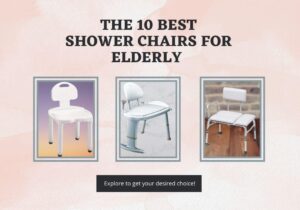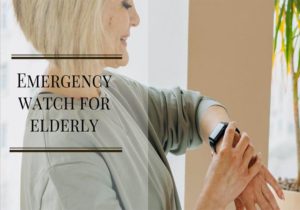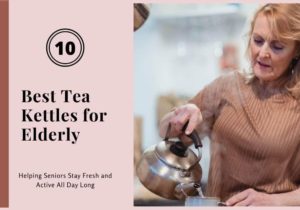Last Updated on: September 7, 2025 by Carlos P. Barry
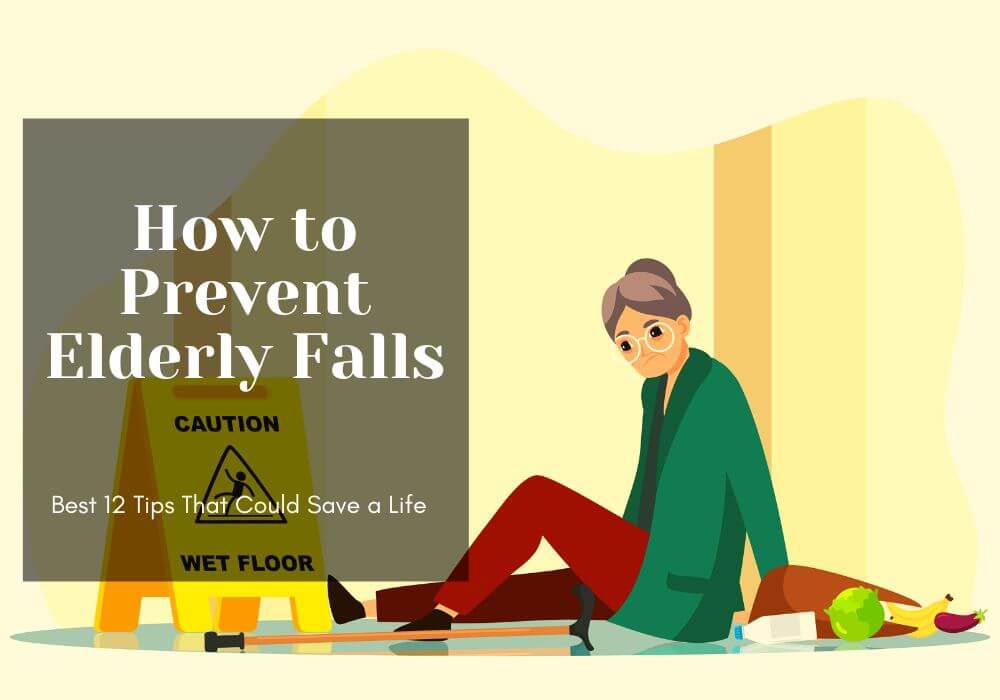
It’s a fact of life: as we age, our risk of falling increases. According to the Centers for Disease Control and Prevention (CDC), one out of four people aged 65 and older falls each year, and falls are the leading cause of injury-related deaths among seniors. More than 95% of hip fractures in older adults are caused by falls, and recovery can be long, difficult, and in some cases, life-threatening.
The good news? Falls are not an inevitable part of aging. With the right knowledge, preventive strategies, and lifestyle changes, seniors can dramatically reduce their risk. In this guide, we’ll explain how to prevent elderly falls, including causes, risk factors, exercises, home safety adjustments, and practical tips. Implementing these strategies could save your life—or the life of someone you love.
Causes and Risk Factors for Elderly Falls
There are many reasons why seniors are more prone to falls. Understanding the causes and risk factors is the first step in prevention.
1. Poor Vision
- Seniors with cataracts, glaucoma, or age-related macular degeneration may not clearly see obstacles in their path.
- Skipping regular eye exams can make vision problems worse.
- Prevention tip: Get annual eye check-ups and keep your prescription glasses or contact lenses up-to-date.
2. Muscle Weakness
- Aging naturally reduces muscle mass, which affects balance and strength.
- Lack of physical activity accelerates weakness.
- Prevention tip: Regular strength and balance exercises help maintain mobility.
3. Medications
- Certain prescriptions, especially for blood pressure, depression, or sleep disorders, can cause dizziness, drowsiness, or low blood pressure.
- Prevention tip: Review medications regularly with your doctor or pharmacist.
4. Poor Lighting
- Dimly lit staircases, hallways, and bathrooms make it harder to spot tripping hazards.
- Prevention tip: Install bright, glare-free lighting throughout the home.
5. Loose Rugs and Clutter
- Throw rugs, cords, and clutter are common tripping hazards.
- Prevention tip: Secure rugs with non-slip backing and keep floors clear.
6. Footwear Issues
- Slippery socks, high heels, or worn-out shoes increase fall risk.
- Prevention tip: Choose non-slip shoes or supportive footwear.
You can also like to Read: “Shoes for Elderly to Prevent Falls“
7. Health Conditions
- Diabetes, Parkinson’s disease, arthritis, and heart conditions may affect balance.
- Cognitive impairments like dementia also contribute to unsteady movement.
8. Alcohol Use
- Alcohol impairs judgment, slows reflexes, and increases dizziness.
- Prevention tip: Limit alcohol intake, especially if taking medication.
These are just a few of the many causes and risk factors for falls in seniors. By being aware of these causes and risk factors, seniors and caregivers can take proactive steps to prevent falls.
Now that we know some of the causes and risk factors for falls, let’s explore how to prevent elderly falls. Here are a few tips:
- Exercise regularly
- Use assistive devices
- Review your medications
- Make your home safe
- Handrails and grab bars should be installed
- Wear clothing that fits snugly
- Ensure proper light
- Wear non-slippy shoes
- Take your time when you move
- Get enough restful sleep
- Limit your alcohol intake
- Get up slowly and stand up straight
1. Exercise regularly
Staying active is one of the best ways to keep your muscles strong, improve your balance, and reduce the risk of falls. Even small, consistent exercises can make a big difference in your daily life.
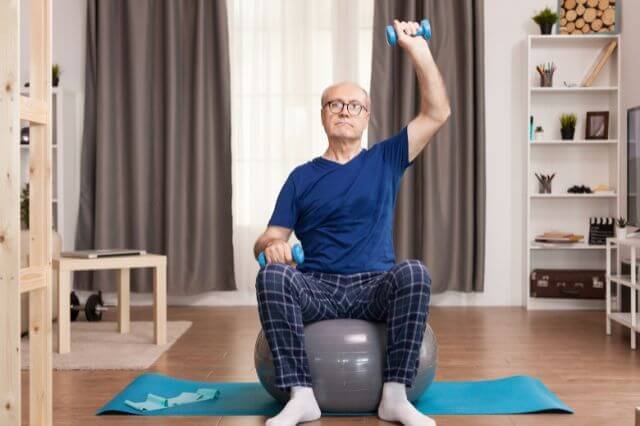
Tai Chi is an excellent choice for seniors. This gentle, flowing form of exercise focuses on slow movements, balance, and coordination, helping you feel steadier on your feet. It’s low-impact, easy on the joints, and can even be relaxing for the mind.
Other safe and effective activities include:
- Walking: Simple, low-cost, and great for overall health.
- Yoga or chair yoga: Improves flexibility, strength, and balance.
- Water exercises: Provides resistance while being gentle on joints.
- Light strength training: Helps maintain muscle tone and mobility.
Try to aim for 20–30 minutes of activity most days of the week. Remember, it’s never too late to start, and even short, regular sessions can make a big difference. Always check with your doctor before beginning a new exercise routine.
2. Use assistive devices
If you feel unsteady or are at risk of falling, using assistive devices can make a big difference in your safety and confidence. Canes, walkers, and other support tools are designed to help you maintain balance, reduce strain, and prevent accidents while moving around your home or outdoors.
It’s important to choose the right device for your needs. Talk to your doctor or a physical therapist to find one that fits properly and is easy to use. With the right support, you can move more freely and enjoy your daily activities with greater peace of mind.
3. Review your medications
As we get older, our bodies process medications differently than when we were younger. This means that even familiar medications can sometimes cause side effects like dizziness, drowsiness, or lightheadedness—factors that increase the risk of falls.
To stay safe, it’s important to review all your medications regularly with your doctor or pharmacist. Ask about potential side effects, interactions, and whether any adjustments can be made. By staying informed, you can take your medications safely while reducing your risk of falling.
4. Make your home safe
Creating a safe home environment is one of the most effective ways to prevent falls. Start by removing clutter and keeping walkways clear—even small obstacles like loose cords, shoes, or pets’ toys can cause a trip.

Check for common hazards such as:
- Unsecured rugs or carpets
- Poorly lit stairways and hallways
- Wobbly furniture or unstable chairs
Repair or remove anything that could cause a fall, and consider adding non-slip mats in areas like the bathroom or kitchen. A few simple adjustments can make your home much safer, giving you peace of mind and more independence.
Check out our post: “Home Safety for Seniors”
5. Handrails and grab bars should be installed
Handrails and grab bars are simple additions that can make a big difference in safety. They provide extra support and stability, especially in areas where slips are most likely—like bathrooms, stairways, and hallways.
Adding grab bars near the toilet, bathtub, or shower helps you move with confidence and reduces the chance of losing your balance. Installing sturdy handrails on both sides of stairs also gives you something to hold onto, making each step safer.
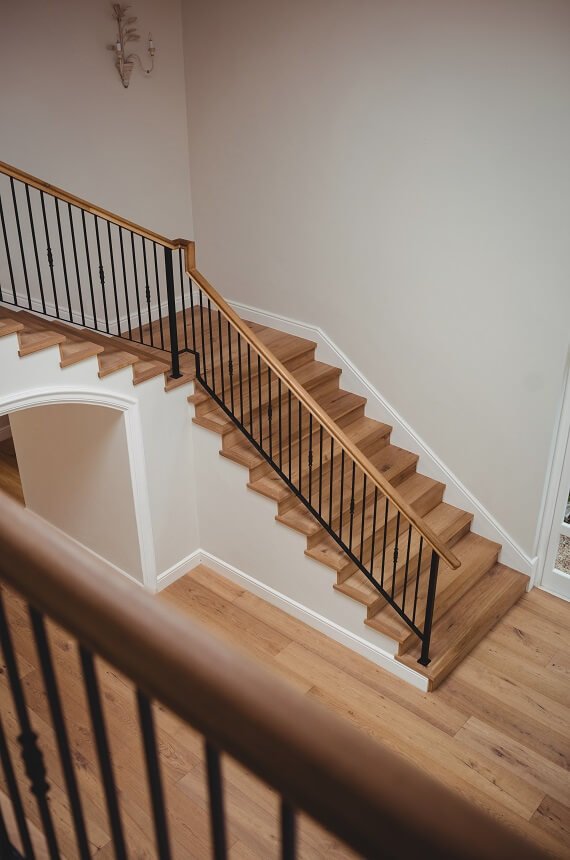
If you’re unsure where to place them, ask your doctor or an occupational therapist for recommendations. With these supports in place, you’ll feel more secure and independent in your own home.
✅ Quick Checklist: Best Places for Grab Bars & Handrails
6. Wear clothing that fits snugly
The clothes you wear can play a bigger role in your safety than you might think. Loose or flowy clothing can easily get caught on furniture, doorknobs, or even your walking aid, which may cause you to trip or lose your balance.
To stay safe, choose well-fitting clothes that allow you to move comfortably but don’t hang down too loosely. Stretchy fabrics and elastic waistbands are excellent choices—they’re easy to put on, comfortable, and won’t get in your way.
A few simple wardrobe adjustments can help you move freely, stay safe, and feel confident throughout the day.
✅ Safe Clothing Tips for Seniors
- Keep accessories simple—avoid long scarves or jewelry that could snag
- Choose clothes that fit well—not too tight, not too loose
- Avoid pants or skirts that drag on the floor
- Select tops without long, dangling sleeves that could catch on furniture
- Pick nightwear that is warm but not oversized or trailing
- Wear non-slip shoes or slippers indoors (avoid socks alone on smooth floors)
7. Ensure proper light
Good lighting is one of the simplest and most effective ways to prevent falls at home. Poorly lit hallways, staircases, or bathrooms can make it hard to see obstacles and increase the risk of tripping.
Keep your home bright and well-lit, especially in areas where you walk often, like entryways, stairways, and paths to the bathroom at night. Consider adding motion-sensor night lights in the bedroom, hallways, and bathrooms so you never have to fumble in the dark.
Also, make sure light switches are easy to reach, and replace any burnt-out bulbs right away. A little extra light can give you a lot more confidence and safety in your daily movements.
8. Wear non-slippy shoes
The right shoes can make a huge difference in keeping you safe and steady on your feet. Shoes with good traction and support help prevent slips, trips, and falls, especially on smooth or uneven surfaces.
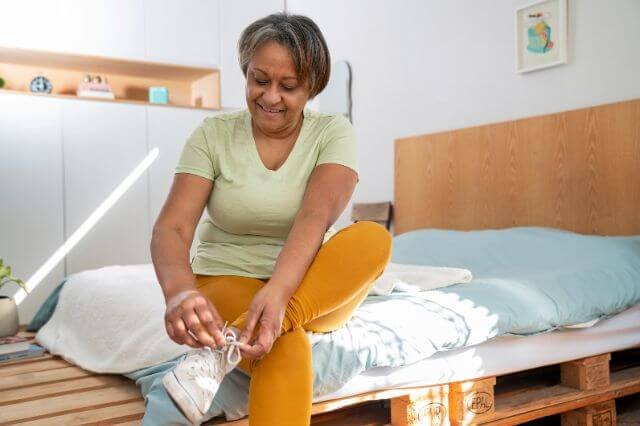
Avoid footwear with smooth soles, high heels, or floppy slippers, as they can make you unstable. Instead, choose shoes that:
- Have non-slip rubber soles for better grip
- Fit comfortably without being too tight or too loose
- Provide good arch and ankle support
- Are easy to put on and take off, such as Velcro or slip-on styles
For added safety indoors, consider wearing non-slip socks or supportive house shoes instead of walking barefoot or in regular socks.
A good pair of shoes doesn’t just protect your feet—it helps you move around with confidence and independence.
9. Take your time when you move
Rushing is one of the easiest ways to lose your balance and fall. Whether you’re getting out of bed, standing up from a chair, or walking through the house, moving too quickly can make you feel dizzy or unsteady.
Give yourself time. Stand up slowly, steady yourself before taking your first step, and don’t be afraid to pause if you feel off balance. Using handrails, grab bars, or a cane when needed can also give you extra support.
Remember, there’s no need to hurry—your safety is more important than speed. Moving mindfully and carefully helps you stay steady and reduces the chance of a fall.
✅ Safe Standing & Walking Steps
- Walk at a comfortable pace – Avoid rushing, especially on stairs or uneven ground.
- Pause before standing – Sit for a moment, place your feet flat on the floor, and take a deep breath.
- Use your hands for support – Push up gently from the armrests of a chair or use a grab bar.
- Stand up slowly – Avoid sudden movements to prevent dizziness.
- Steady yourself – Once upright, wait a few seconds to make sure you feel balanced.
- Take your first steps carefully – Hold onto a handrail, cane, or walker if needed.
- Walk at a comfortable pace – Avoid rushing, especially on stairs or uneven ground.
10. Get enough restful sleep
A good night’s sleep is just as important for your safety as it is for your health. Without enough rest, you may feel tired, weak, or less alert during the day, which increases your risk of losing balance or having an accident.
Aim for 7–9 hours of quality sleep each night. Try to keep a regular bedtime routine, avoid caffeine late in the day, and make your bedroom a comfortable, quiet place for rest.
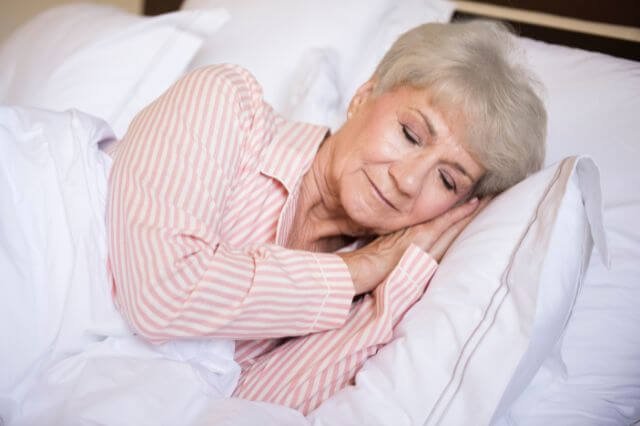
When you’re well-rested, you’ll have more energy, focus, and stability, making it easier to stay active and prevent falls. Remember, sleep is not a luxury—it’s a vital part of keeping your body strong and your mind sharp.
✅ Quick Bedtime Routine for Seniors
- Stick to a regular bedtime and wake-up schedule
- Avoid caffeine, heavy meals, or alcohol before bed
- Dim the lights and keep your bedroom cool and quiet
- Turn off TVs, phones, and tablets at least 30 minutes before bed
- Use a night light in the hallway or bathroom for safe nighttime trips
- Do a relaxing activity, like reading or gentle stretching, before sleep
11. Limit your alcohol intake
Alcohol can affect your balance, coordination, and judgment, making falls more likely. Even small amounts can increase your risk of tripping, stumbling, or losing stability.
If you choose to drink, do so in moderation, and avoid alcohol when taking medications that may cause dizziness or drowsiness. Staying mindful of your intake helps you maintain alertness, strength, and confidence throughout the day.
✅ Tips for Safer Alcohol Use
- Stick to recommended limits or consider abstaining entirely
- Avoid drinking alcohol when taking medications that cause drowsiness
- Drink water alongside alcohol to stay hydrated
- Never rush or move quickly after consuming alcohol
By being cautious, you can enjoy a social drink while keeping your risk of falls low.
12. Get up slowly and stand up straight
Standing up too quickly can make you feel dizzy or unsteady, which increases your risk of falling. By taking a few simple steps, you can get up safely and move with confidence.
✅ Step-by-Step Guide to Standing Safely
- Start in your seat: Wiggle your toes and take a few deep breaths to get your body ready.
- Use your hands for support: Place them on the armrests or on your knees.
- Rise slowly: Push gently with your legs and lift yourself gradually. Avoid sudden movements.
- Steady yourself: Once standing, pause for a moment to make sure you feel balanced.
- Stand tall: Keep your back straight, shoulders relaxed, and head up.
- Begin walking carefully: Hold onto a cane, walker, or nearby support if needed.
By practicing these steps every time you stand, you’ll reduce dizziness, maintain balance, and prevent falls—giving you more confidence in your daily activities.
Home Safety Checklist for Seniors
Use this home safety checklist to reduce fall risks:
- ✅ Install grab bars in bathrooms
- ✅ Add bright, non-glare lighting
- ✅ Secure or remove throw rugs
- ✅ Keep floors clutter-free
- ✅ Use non-slip mats in the kitchen and bathroom
- ✅ Ensure furniture arrangement leaves clear walkways
- ✅ Place commonly used items within easy reach
Fall Prevention Exercises for Seniors
Incorporating regular exercise can drastically lower the risk of falls. Here are some recommended exercises:
1. Balance Exercises
- Heel-to-toe walk
- Standing on one foot
- Side leg raises
2. Strength Training
- Squats using a chair
- Wall push-ups
- Light resistance band exercises
3. Flexibility Exercises
- Gentle yoga stretches
- Neck, shoulder, and ankle rotations
4. Endurance Activities
- Walking 20–30 minutes a day
- Swimming or water aerobics
(Always consult with a doctor before starting new exercise routines.)
When to Seek Professional Help
If you or your loved one:
- Frequently stumbles or loses balance
- Feels dizzy when standing
- Has already experienced one or more falls
- Takes multiple medications that cause drowsiness
Then it’s important to consult with a healthcare provider, physical therapist, or occupational therapist. They can recommend tailored strategies and possibly physical therapy to strengthen balance.
Helpful Resources
- CDC – Important Facts about Falls
- National Institute on Aging – Preventing Falls at Home
- Shoes for Elderly to Prevent Falls
- Bed Rails for Seniors
- Non-Slip Socks for Elderly
Falls are a serious health risk for seniors, but they are not inevitable. By understanding the causes, making simple lifestyle changes, exercising regularly, and adapting your home environment, you can dramatically reduce fall risk. Remember: prevention is always better than recovery.
Whether you’re a senior or a caregiver, knowing how to prevent elderly falls is essential for safety and peace of mind. Take action today and make fall prevention a priority. With awareness and proactive steps, seniors can continue to live confidently, safely, and independently.
👉 What other tips do you have for preventing elderly falls? Share your thoughts in the comments below! Thanks for reading!
YOU CAN ALSO READ :
*Best 10 Dress Code Ideas: What to Wear to A Retirement Party?
*Best Retirement Party Decorations Ideas to Make It Memorable
*10 Best Soft Food Ideas for Elderly: Learn the Ingredients, Tastes & Benefits


